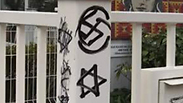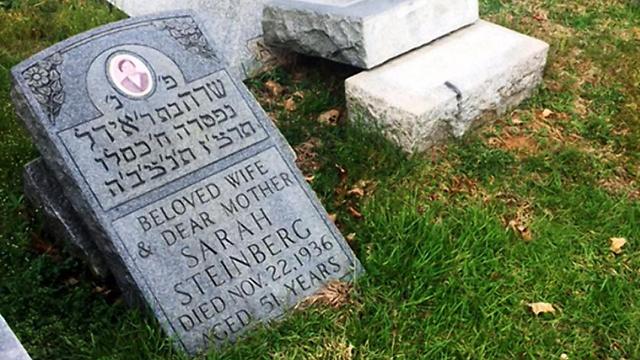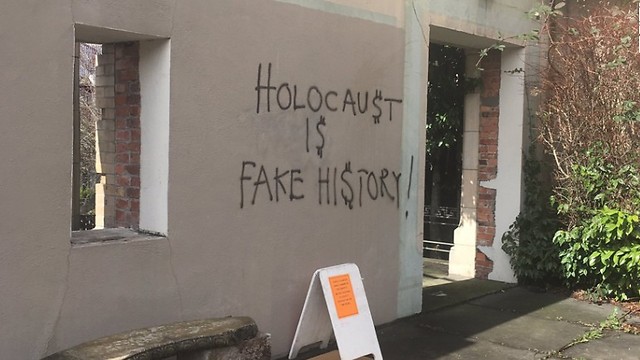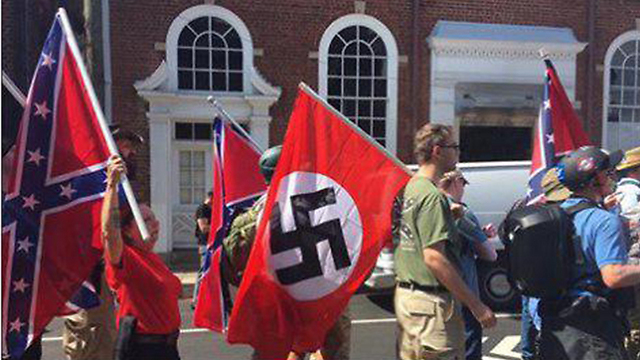
As anti-Semitism grows, sense of shame dissipates
Op-ed: The resurgence of anti-Semitism more than 70 years after the Holocaust is highly disturbing; it isn’t helpful, however, to compare it to events in the 1930s and 1940s, but there are certain things we should be concerned about.
I say ironic because one cannot begin to understand what the Holocaust was about without recognizing the history of anti-Semitism in Western civilization. There were many factors underlying the Nazi genocide against the Jews, but none of it could have happened without that deeply embedded millennial hatred of Jews.
Whether we look at the perpetrators—the Nazis, or the collaborators—the many extremists across the continent who willfully abetted the Nazis, or the bystanders—who stood by while the slaughter happened, anti-Semitism was the common denominator.
The resurgence of anti-Semitism more than 70 years after the Shoah, therefore, is particularly disturbing. It is not helpful, however, to compare it to events in the 1930s and 1940s. Whatever today's challenges, particularly in the West, there are no governments committed to an anti-Jewish agenda like the Nazis.
What then should we be concerned about?
First is the loss of shame about anti-Semitism. When the first pictures of Auschwitz appeared at the end of WWII, a sense of shame about what anti-Semitism had led to enveloped the Western world. Anti-Semitism did not suddenly disappear as a result, but it did serve as a major inhibiting factor for decades in the acting out of anti-Semitism.
Today, for two reasons, that sense of shame has dissipated. Time and new generations have eviscerated that visceral feeling. When anti-Semitism appears, thoughts of the Holocaust don't necessarily surface.
Second, the daily bombardment of anti-Israel activity and media coverage has as well weakened that sense of shame. In the most extreme terms it is framed as “we had our Nazis and now you Jews have yours,” so there is a moral cancellation at work.
Added to that are the many crises in the world—global terrorism, financial collapse, refugee challenges, identity issues. All of which create a fertile climate for the growth of anti-Semitism.
This year has witnessed a continuation of the anti-Semitic trend in Europe together with a new concern about anti-Semitism in America.
The European development is disappointing but not shocking, considering the history of the continent.
The past year has seen a series of events that raise a red flag. Far right parties, many of whom have an anti-Semitic culture, are now either represented in government, as in Austria, or are gaining ground electorally as in Germany, or engage in vile anti-Semitic propaganda such as the Jobbik Party in Hungary or the Golden Dawn in Greece.
Nationalist sentiment which historically has not boded well for Jews in Europe has strengthened in Poland and Hungary.
On the left, the Labour Party in Britain has been tinged by anti-Semitism (and an unwillingness to clearly denounce it.
And Muslim and other anti-Israel extremists continue to threaten Jewish communities. A man holding a Palestinian flag smashed a window of a kosher restaurant in Amsterdam. Molotov cocktails were hurled (https://www.ynetnews.com/articles/0,7340,L-5054520,00.html) at a synagogue in Gothenburg, Sweden in December, followed by another episode of Molotov cocktails directed at a Jewish chapel in Malmo.
The American development is both disappointing and shocking, since for many Jews in America there had grown a perception that anti-Semitism was no longer a major problem.
The public demonstration of white supremacists in Charlottesville was a wakeup call for American Jews because of the size of the march, the language of the demonstrators—"the Jews won't replace us," and the brazenness of the hate.
Together with a more than 60 percent increase in anti-Semitic incidents, the hyperactivity of far-right groups on campuses, and the continuing BDS activity on college campuses, anti-Semitism returned to the consciousness of American Jews in a way we haven't seen in some years.
On this day of commemoration, what can we do? There is no magic wand. We must work every day to strengthen democratic values and institutions, develop creative approaches to deal with hate on the Internet and social media, and work on social cohesion in societies.
Above all, every individual should take on the responsibility of standing up against hate whenever they see it and wherever it comes from.
Carol Nuriel is the executive director of the Anti-Defamation League office in Israel.













